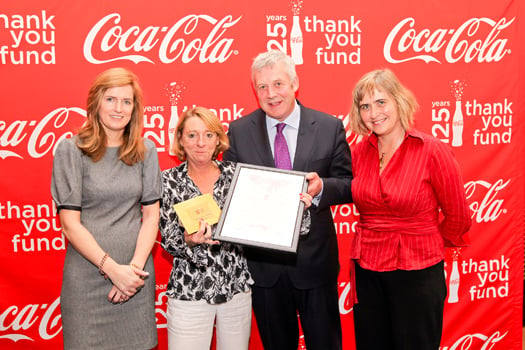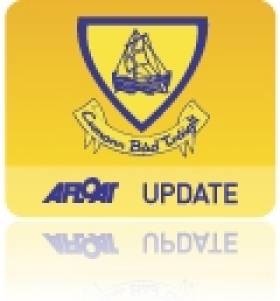Displaying items by tag: sailing.school.
Tralee Bay Sailing School Enjoy a Coke and Five Grand
Tralee Bay Sailing School has been awarded €5,000 euro to develop its Tralee Bay Access Sailing programme for people with physical and sensory disabilities in Kerry. The award will go towards a mobile hoist to enable people with disabilities to get in and out of a range of water based craft along with some equipment to upgrade the fleet of boats and equipment used to teach people with disabilities how to sail, kayak or use a power boat.
There were a couple of stages to this competition. Firstly the 600 entries were narrowed down to a shortlist of 45. This 45 then went to the public vote during the month of September. During that period the judging panel also came together to vote. Following the outcome of both the judges and the public vote the winning 15 groups were decided on.
The award ceremony took place in the Royal College of Physicians and was attended by Minister of State at the Department of Environment, Community & Local Government, Mr Fergus O'Dowd TD.
The judging panel was made up of a variety of community leaders who were selected because of their proven track-record in making positive contributions to society. As well as Coca-Cola members included Dame Mary Peters, Past Olympian, Sarah O'Connor, Executive Director at The Federation of Irish Sports , Michael Ewing, CEO, Irish Environmental Network, Eoghan Murphy, Fine Gael TD , Deirdre Garvey , CEO, The Wheel and James Laverty, NICVA.

Pictured at the presentation of the Coca Cola 125 Thank You Fund Award from left to right are: Jenny Heaphy, Coca Cola Ireland, Jacqui Browne, Tralee Bay Sailing School, Minister Fergus O'Dowd and Deirdre Garvey, CEO of The Wheel.





























































